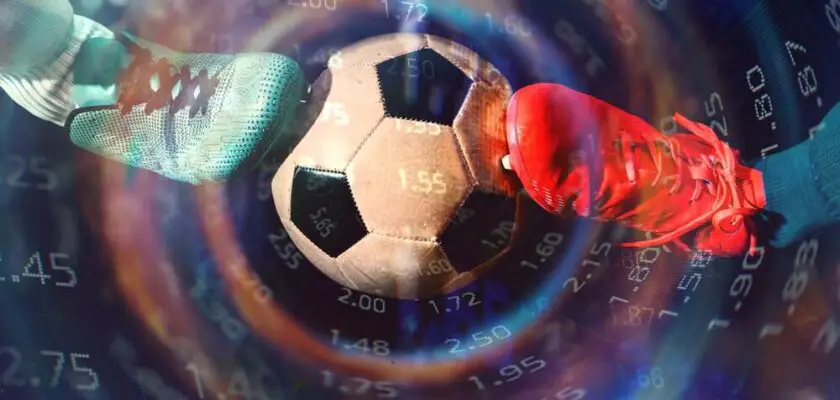The CPI on Match-Fixing and Sports Betting is one of the most impactful topics in Brazilian football in recent years, investigating fraud schemes in matches and the betting market, involving players, officials, businessmen, and betting houses.
The CPI began in 2024 and had its report approved in 2025, with indictments, proposals for legislative changes, and a warning about the integrity of the national sport.
What is the CPI on Match-Fixing and Sports Betting?
The CPI (Parliamentary Commission of Inquiry) on Match-Fixing and Sports Betting was established in the Federal Senate in April 2024 to investigate allegations of match-fixing in football games and fraud in the online sports betting market.
The objective of the CPI on Match-Fixing and Sports Betting was:
- to investigate the actions of criminal organizations;
- to identify those responsible;
- to propose measures to curb this type of crime, which threatens the credibility of the country’s most popular sport.
The commission was chaired by Senator Jorge Kajuru (PSB-GO) and had Senator Romário (PL-RJ) as its rapporteur, both former football players and prominent figures in Congress.
Also read: Bruno Henrique and betting: what happens after the indictment? Timeline and next steps in the case
Why was the CPI created?
In recent years, the growth of online sports betting coincided with a series of allegations of match-fixing in football games, including Federal Police investigations, such as the “Penalidade Máxima” and “Jogada Ensaiada” operations, which uncovered schemes involving players, referees, and officials.
According to the Federal Police investigations, those involved were enticed to provoke yellow cards, penalties, expulsions, or even team relegations, all to benefit bettors and betting houses.
Furthermore, international investigations also spurred the start of the work here. Among the cases with the greatest international repercussion is the investigation into player Lucas Paquetá, accused by the English FA of deliberately committing fouls to benefit bettors, which also pressured the Senate to act.
The scandal reached clubs from all divisions, businessmen, former athletes, and even players’ relatives, showing the extent of the problem.
Key figures involved and indicted
The CPI identified and requested the indictment of several names linked to match-fixing and fraud in sports betting. Among the main people involved are:
- William Pereira Rogatto: Businessman identified as one of the biggest match-fixers in Brazil. He confessed to having relegated 42 teams and moved about R$300 million in betting schemes. He was arrested in Dubai by Interpol….
- Thiago Chambó Andrade: Businessman accused of financing schemes, corrupting athletes, and providing resources for illicit payments. He did not appear before the CPI when summoned.
- Bruno Tolentino: Uncle of player Lucas Paquetá, suspected of financial transactions incompatible with his assets and of participating in suspicious betting involving his nephew’s matches.
- Bruno Lopez de Moura: Former player and businessman who confessed to participating in schemes but was not indicted due to an agreement with the Public Prosecutor’s Office.
- Lucas Paquetá: West Ham (England) and Brazil national team player, accused by the FA of manipulating yellow cards. He has always denied the accusations, but his case was central to the CPI investigations.
In addition to these, the report mentions officials, referees, intermediaries, and companies linked to the betting sector.
Also read: CBF-Nike CPI: 25 years after the 1st football CPI, the federation may become a defendant again
How did the match-fixing and betting scheme work?
The CPI investigations showed that the scheme was sophisticated and involved different stages and actors:
- Recruitment of players: Athletes were approached by intermediaries and received offers to provoke yellow cards, penalties, expulsions, or specific results in exchange for money. Payment for a yellow card, for example, could reach R$150,000 in Série B games.
- Corruption of referees: In testimony to the CPI, William Rogatto stated that he paid up to R$50,000 to referees to influence results.
- Involvement of officials: Clubs “rented out” teams to criminals, allowing entire matches to be manipulated to guarantee profits in betting.
- Bets on isolated events: The focus was on simple bets (single bets), such as the first yellow card, number of corners, or expulsions, as these are easier to manipulate without altering the final result of the match…. Money laundering: Profits were laundered through shell companies, suspicious bank transfers, and financial movements incompatible with the assets of those involved.
Also read: What is Bet Builder: the format with higher odds (and risks)! How to place your bet?
Stages of the CPI: From investigation to the final report
- Installation and initial testimonies
The CPI was installed in April 2024, with the summoning of players, officials, representatives of betting houses, and sports authorities.
The goal was to map the functioning of the betting market and identify vulnerabilities in the oversight system.
- Bombshell revelations
During the testimonies, confessions and strong evidence against relevant names in the football world came to light. - Parallel operations
The CPI worked together with Federal Police operations that dismantled gangs and arrested those involved in match-fixing. - Preparation and approval of the final report … The final report, presented by Senator Romário, was approved in March 2025.
The document proposes indictments, legislative changes, and recommendations for public bodies such as the Public Prosecutor’s Office, Federal Police, and the Ministries of Justice, Finance, and Sports.
Also read: VaideBet Corinthians case: timeline and next steps of the investigation
Recommendations and legislative changes proposed by the CPI
The final report of the CPI on Match-Fixing and Sports Betting goes beyond simply indicting those involved. It proposes a series of changes to combat match-fixing and make the betting market safer and more transparent. Below are the main suggestions presented in the report.
New crimes and harsher penalties
- Creation of the crime of fraud in the betting market, with imprisonment from 1 to 4 years and a fine, including athletes who provide privileged information.
- Increase in penalties for sports fraud, from 2-6 years to 4-10 years in prison.
- Criminalization of the dissemination of unreal betting winnings, to combat misleading advertising.
Restrictions on simple bets (single bets)
Prohibition or limitation of bets on isolated events, such as cards, corners, and penalties, considered high risk for manipulation.
Changes in sports legislation
- Suspension or ban of convicted athletes, with the possibility of referral to the Superior Court of Sports Justice (STJD).
- Mandatory warnings about the risks of pathological gambling on betting platforms, both at registration and at every user access.
Oversight and transparency
- Creation of a specific body for real-time monitoring of bets, identifying suspicious patterns and requiring greater financial transparency from betting houses.
- Expansion of the Federal Police’s powers to investigate cases of manipulation in national and international competitions.
- International partnerships for exchanging information on fraud and money laundering in the betting sector.
Constitutional amendment
Mandatory attendance at CPIs, including for public authorities, with the possibility of using police force in case of absence…. With all this, without a doubt, the CPI on Match-Fixing and Sports Betting marked a turning point in the fight against corruption in national sport.
Sending the report to the Public Prosecutor’s Office, Federal Police, and Executive bodies should result in new investigations, criminal proceedings, and, above all, changes in legislation and sector oversight.
Furthermore, the pressure for greater transparency and integrity may lead clubs, federations, and betting houses to adopt stricter compliance practices, bet monitoring, and athlete education on the risks and penalties involved.
Click here to open your account at Betano and start betting right now with a bonus of up to R$500
Payments via PIX (Fast withdrawals and deposits)
Live games (Free streaming of over 100 sports)
Super Odds (The best odds on the market)
Bet responsibly!



